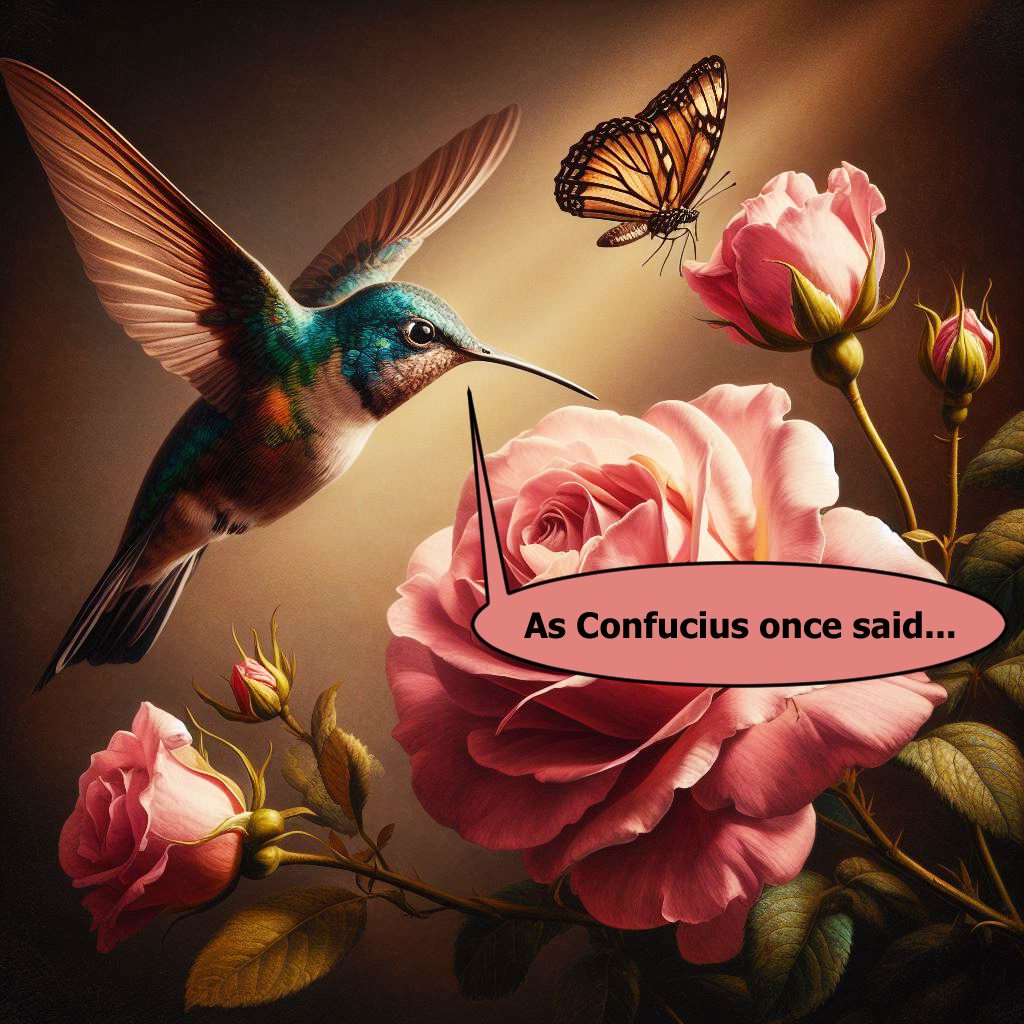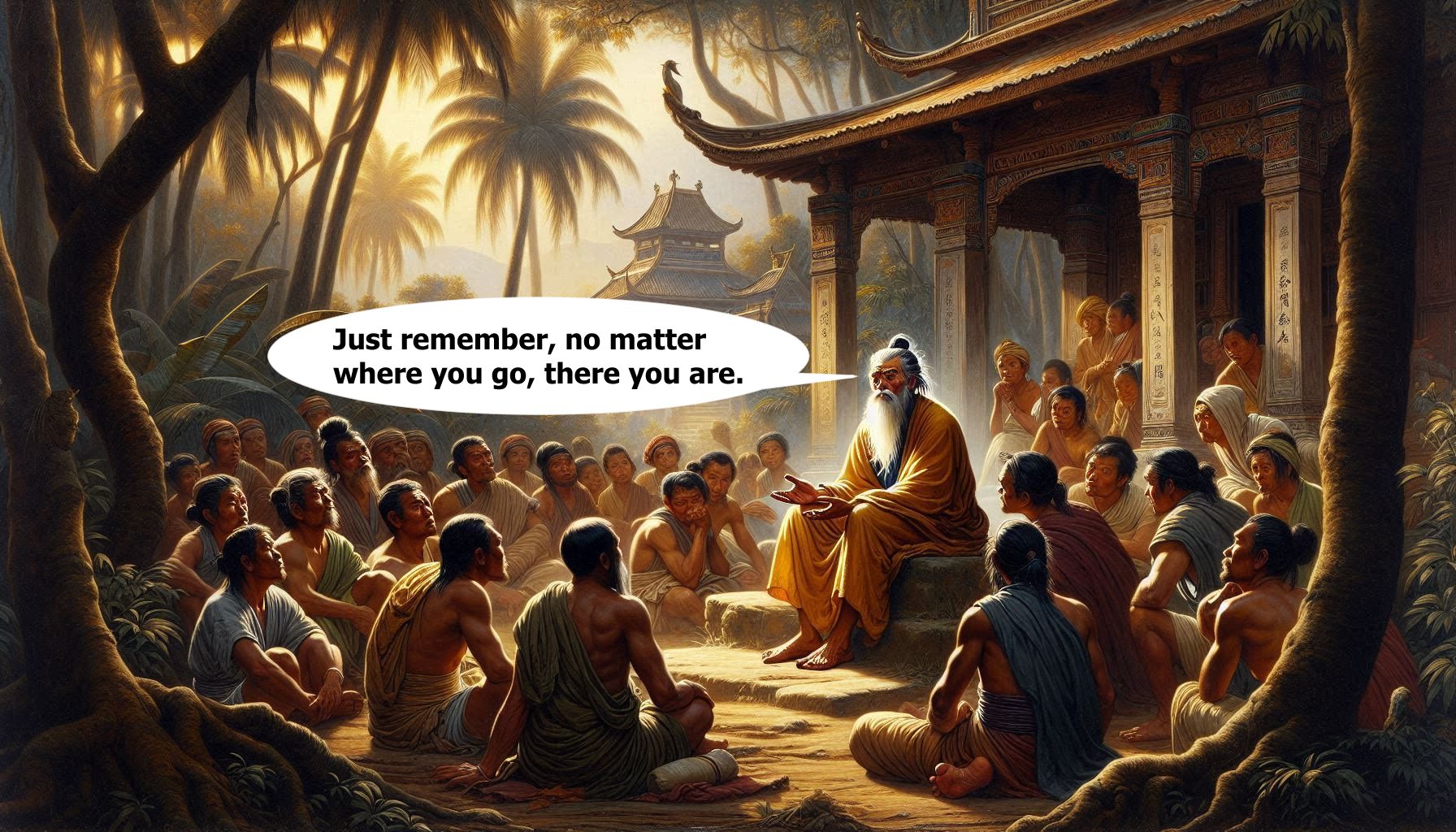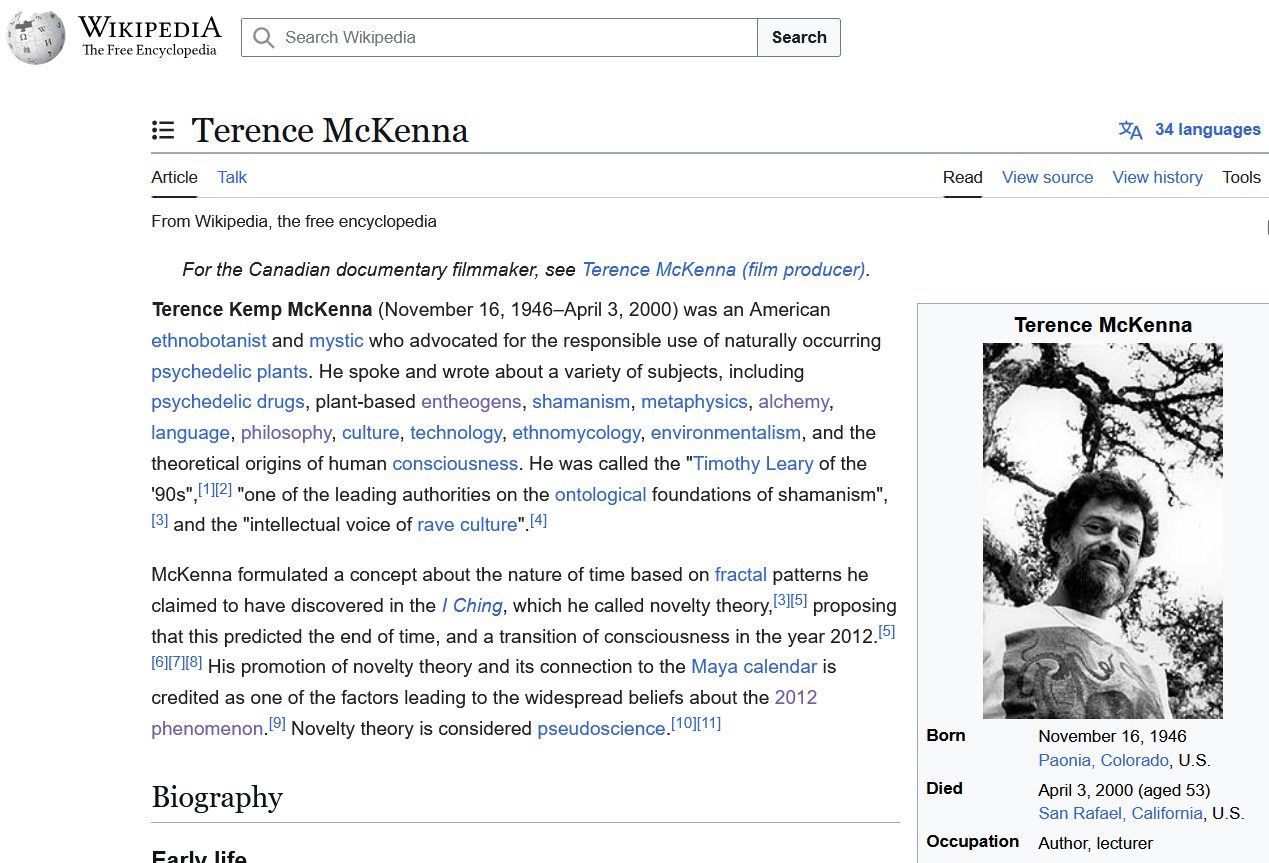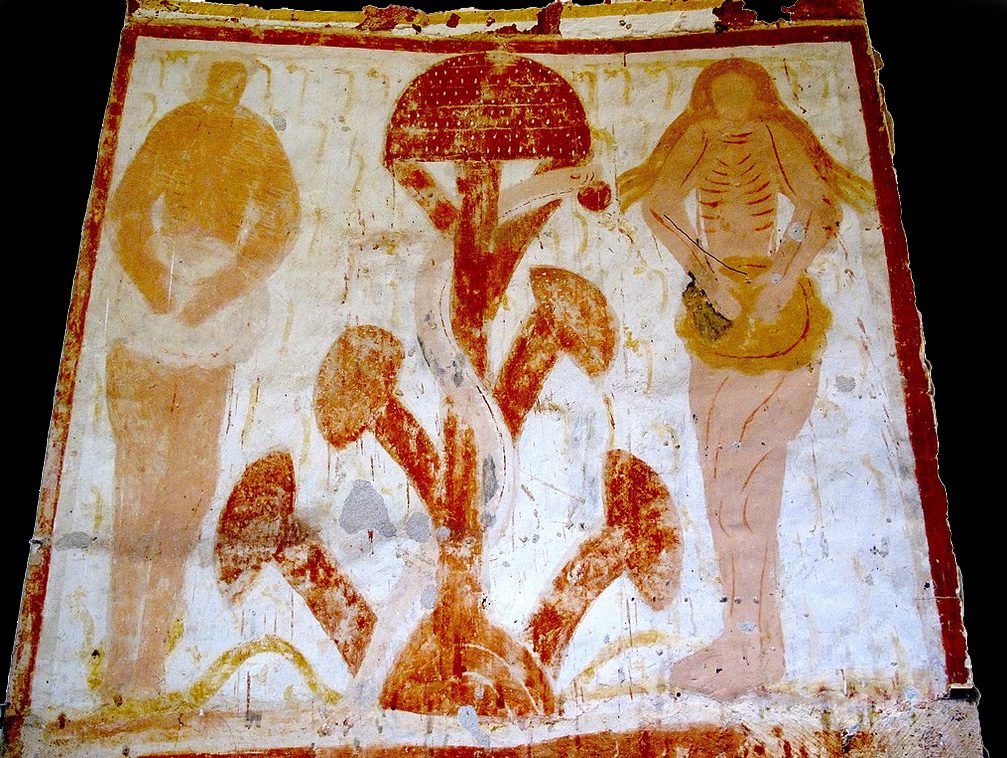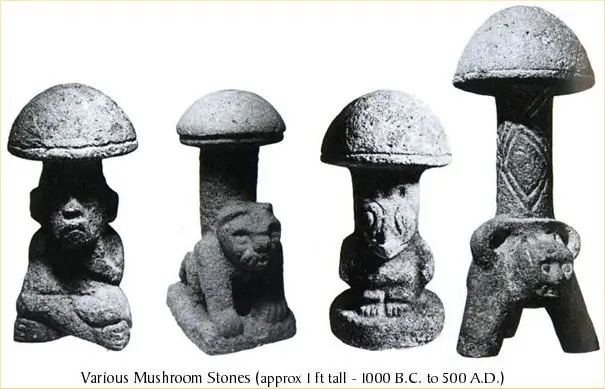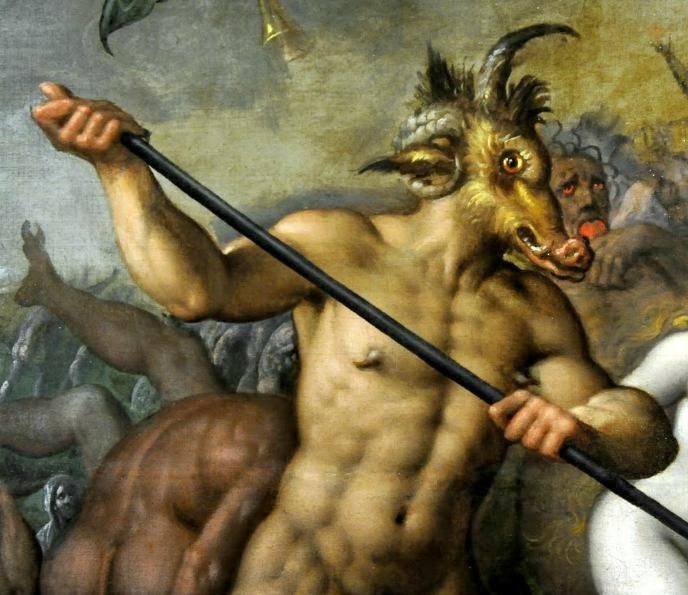

THE STONED APE
In the Beginning
The Origin of Homo sapiens Religiosity

The naturally growing psychoactive substance psilocybin triggered visions in the primitive humanoid consciousness that ultimately evolved into what modern Humans now collectively refer to as Religion. The mushroom Psilocybe cubensis, commonly known as magic mushrooms and hallucinogenic mushrooms, contain psilocybin, which becomes psilocin when eaten and digested.
Primitive humans, the hunter-gatherers, who followed the wild cattle herds and hunted them for subsistence, saw the mushrooms that grew in the cow manure and used these mushrooms for food. Not only did these primitives get a meal but they also got a mind-altering experience, a “Wow, man!” moment that has been documented in ancient cave drawings and objet d'art found in archeological digs.
The "stoned ape theory" was first proposed by ethnobotanist Terence McKenna in his 1992 book Food of the Gods. McKenna suggests that the consumption of psychedelic mushrooms, specifically psilocybin mushrooms, played a crucial role in the evolutionary leap from Homo erectus to Homo sapiens, essentially triggering the "cognitive revolution" by significantly altering human consciousness around 100,000 years ago.
According to the National Center for Complementary and Integrative Health (NCCIH) of the U.S. Department of Health, "…the potential of psychedelic drugs to treat mental health conditions including depression, anxiety, existential distress in serious medical illnesses, post-traumatic stress disorder, and addiction has been growing.”
“Man creates both his god and his devil in his own image. His god is himself at his best, and his devil himself at his worst.” - Elbert Hubbard

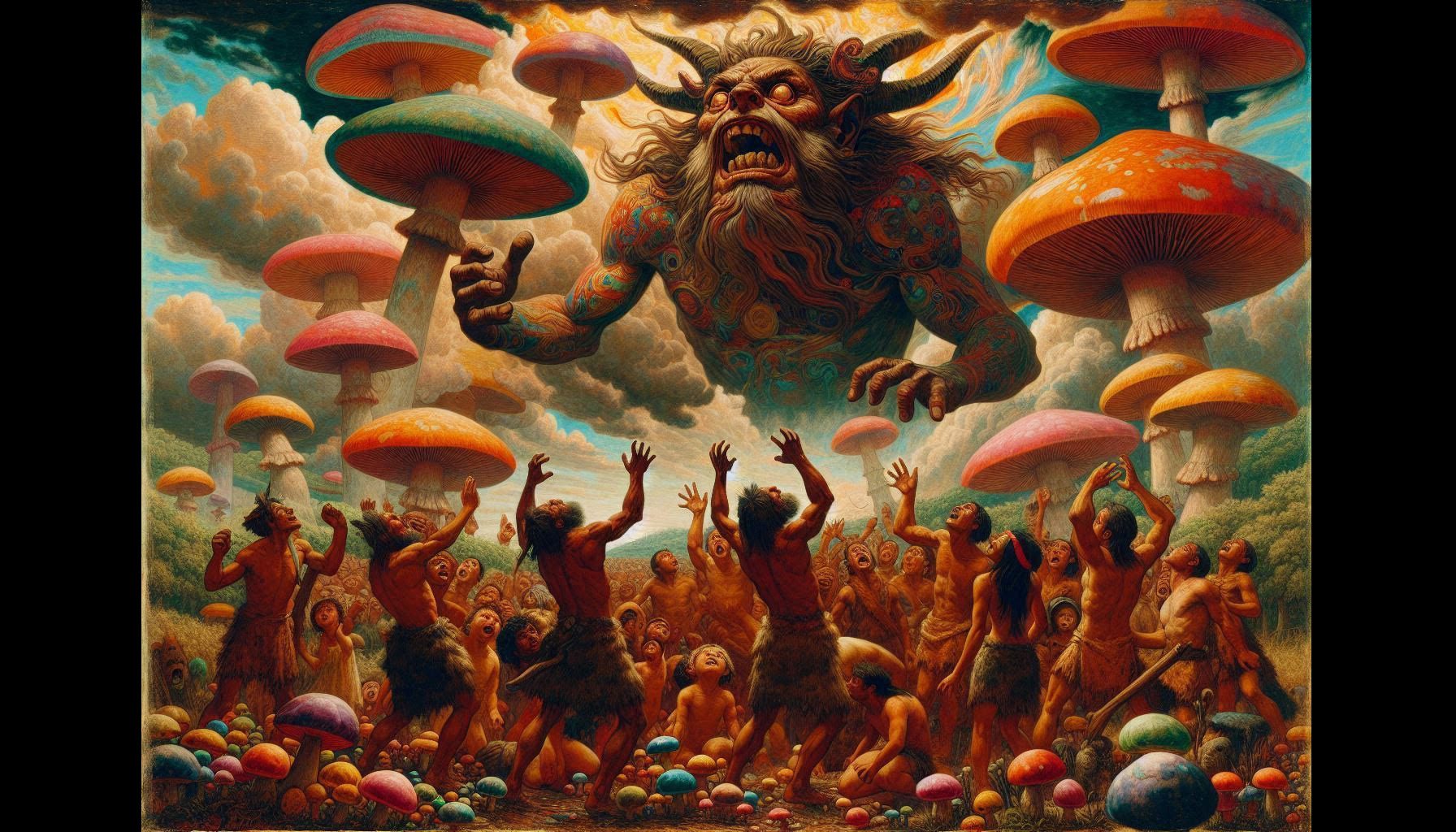

According to McKenna, the first religious impulse of primitive humans was the psilocybin mushrooms that caused the "evolutionary catalyst" from which language, projective imagination, the arts, religion, philosophy, science, and all of human culture sprang. McKenna claimed that minor doses of psilocybin improve visual acuity which bettered the hunting skills of early primates and thus resulted in greater food supply and reproduction. At higher doses, McKenna contended that the mushrooms would increase libido, attention, and energy, resulting in greater reproductive success.
At even higher doses, the psilocybin would promote greater social bonding within early human communities and would trigger activity in a "language-forming region of the brain", resulting in the mental development of visions and music and kickstarting the development of language. According to McKenna, psilocybin would also chip away at internal ego and make religious matters the forefront of the mind.


While this may be regarded as blasphemy, the premise of the “stoned ape theory” would explain the formation of humanity’s embrace of religion. A study of comparative religion and comparative mythology shows the Creation Myths, the Origin Myths, and the gods and goddesses of ancient days and current theologies all share certain attributes, some sort of original proto-myth.
The proto-myth, as visualized in the mind’s eye of the primitive under the influence of the psilocin, is where the concept of an omniscient and omnipotent deity began. Astoundingly, those Stone-Age wonderments have persisted to the modern-era, leading to religious conflicts world-wide that have created, in this age of super-destructive weapons, multiple existential threats.


Estimates range from 4,000 to 10,000 distinct religions in the human record. Globally, the five most predominant religions are Christianity, Judaism, Islam, Buddhism, and Hinduism, some of the followers of which seem determined to slaughter the others on a daily basis. Indeed, each of those have sub-sects that are happy to kill their same-belief neighbors over the interpretation of a verse or word in their Holy book.
Those books, which are supposed to be divinely inspired, were most likely composed by some mortal human under the influence of a religious delusion, a chemical imbalance in the brain, a bipolar disorder or other mental health abnormality. How else can the "One-God" jealousy, the cruelty and the genocide of those Books be explained? Human traits, primate and primitive, that define human behavior, were adopted into those olden-time writings to describe the psychological foundations of the invented gods and goddesses - Sicut dii estis, intoned the writer.


Humans share 98.8% of DNA with chimpanzees, our closest primate relative. Perhaps McKenna's "evolutionary catalyst" that he suggests jumped from Homo erectus to Homo sapiens was even older, Perhaps Homo erectus was originally a tribe of monkeys that happened to live in a certain patch of forest or savannah, where the Psilocybe cubensis mushroom thrived. Perhaps that tribe of monkeys regular diet included the psilocin from the Psilocybe cubensis mushrooms and that was a trigger-point in Darwin's chain of evolution.
Over the hundreds of thousands, even the millions of years of biological evolution, it's really not a stretch of the imagination to consider the concurrent evolution of the mental capacity, the power of Imagination that dwells within that three pound chunk of matter called the Brain. That early brain, sparked by the psilocin, created the concept and practices of Animism, the Spiritual, Religion, and gods and goddesses.





Using alchemy and artistry, humans have searched to find meaning to their existence.
Compare 2nd Samuel 7:18, "Who am I, O Lord GOD, that Thou hast brought me thus far?" to "Cogito, ergo sum," the very act of thinking that proves one's existence, and "I act therefore I am" that highlights individuals actively creating their own identities through their choices and actions.
Did that initial spark, the first creative thought, come from a divine, or a plant-based origin? Which is the most likely scenario?



The "tree of the knowledge of good and evil" and the “forbidden fruit” is mentioned in various early texts including the Sumerian Epic of Gilgamesh (2100 BCE), the Akkadian culture in Mesopotamia (2300 BCE), the Quran, the Hebrew Old Testament, and Jewish mysticism of the Kabbalah. Each account shares certain similarities, except for the places and characters, the story is essentially the same. Could the proto-myth of that story have its origin in the simple fungus family Hymenogastraceae?
Hallucinogenic plants were used by Shamans to focus the minds of their followers. Throughout human history, certain individuals have sought to control their tribe by the use of mysterious powers. The religious ecstasy of the worshippers, under the influence of the Shrooms, under the direction of the Shaman, created certain societal phenomenon that exists to the present day.
The worshippers of the modern era might not be “Tripping” but old habits die hard. When the incense smoke symbolizes the prayers of the faithful rising to heaven, when wine becomes blood, and bread becomes the body, when the martyr is sent to a Paradise full of virgins and fresh fruits, aren’t those blind, unscientific beliefs some sort of hallucination? When it is a group hallucination it allows the Shamans to exercise control over the group.

“We must obey God rather than men." "The Lord watches over those who obey him." "Always obey the Lord and you will be happy." "Worship Him and be steadfast in His worship." “If you will not obey my commands, you will be punished. I will bring disaster on you—incurable diseases and fevers that will make you blind and cause your life to waste away.”

The premise herein is simply stated: All imaginings of a religious nature and the worship and practices thereof are mental aberrations, a form of self-delusion, that in their initial conception(s) were the result of primitive Homo sapiens Mind's being "expanded" by the ingestion of psychoactive substances, specifically Psilocybe cubensis mushrooms.

Furthermore, in this time of heightened religious extremism, global and local, a rational contemplation of the power of religious authoritarianism is necessary to prevent a world ending catastrophe.


Mushrooms in ancient art have been found world-wide; in Mayan culture that illustrate dreamlike expressions, signifying hallucinations or trances. Also in the Pegtymel petroglyphs of Far East Siberia, Russia, in Japanese Netsuke figurines, cave art from Europe, and in Africa and the Middle East. This collection indicates that the mushroom Psilocybe cubensis was part of early human’s staple diet. Apparently, untold generations of early humans experienced the “Wow, man” moment on a regular basis. Question: Would Homo sapiens still be hunter-gatherers, primitive cave dwellers, without the cognitive spark of the mushroom Psilocybe cubensis?

From where did those ignorant, monkey-like, smelly cave-dwellers acquire the ability to conceptualize the thoughts "In the beginning God created the heavens and the earth," and "Let us make man in our image," and the words of Shakespeare, and the extraordinary inventions of electricity and the flushing toilet? From what well-spring sprang such imaginings?

For all of Human's efforts to improve their Earthly circumstances, something continues to cause a devolution of the species. As Spock famously said, "Logic is the beginning of wisdom" but it is not logical at all for Human's to rely upon, to pray to, an invisible omnipotent deity to intervene and correct their troubling circumstances.
Especially, when that deity, in 2004, on the date of His Son's birthday, would send the Asian Tsunami to the coasts of the Indian Ocean, killing an estimated 227,898 people in 14 countries.
Or, could that particular deity have been the Evil One, the Satan, which is also an invention, a mental abberation, of Humans?

The dualistic thinking of Zoroastrianism during the Babylonian Exile (586–538 BCE), influenced late Judaism. Satan as an opponent of God and an evil figure originated in Jewish pseudepigrapha during the Second Temple Period (539 BCE–70 CE). The name Satan comes from the early Hebrew language meaning the "opposer" or "adversary".
The early Christian idea of Satan was not well developed, but it grew through art, folklore, theological treatises, and first appeared in the 16th century, when Christian groups used “Satan” to attack other Christians and "infidels" during the Inquisitions.
Neither a True-Believer nor a Non-Believer can prove or disprove the validity of religion. Carl Sagan said that believing in the absence of evidence is a mistake. He believed that people should withhold belief until there is compelling evidence. But what could be evidence, and when would it be known, and by whom? And how should humans conduct themselves toward their fellow humans in the interim?
“Humanism is the belief that we can live good lives without religious or superstitious beliefs.” – British Humanist Association, 2003.
“A humanist is someone who does the right thing even though she knows that no one is watching.” – Dick McMahan, New York humanist, 2004.
"Religion is the sigh of the oppressed creature, the heart of a heartless world, and the soul of soulless conditions. It is the opium of the people." Karl Marx, A Contribution to the Critique of Hegel's Philosophy of Right.
"The easiest way to establish a dictatorship is to claim you are God's representative on earth." Christopher Hitchens.
“Political freedom cannot exist in any land where religion controls the state, and religious freedom cannot exist in any land where the state controls religion.” — Sen. Sam J. Ervin Jr.

When a political leader says the words, "God spared my life for a reason...", and "We tolerate no one in our ranks who attacks the ideas of Christianity," Hitler, 1928, and “The Democratic party is a demonic death cult under the power and influence of Satan,” it's a warning that les excréments vont atteindre le ventilateur.

First Amendment of the Constitution of the United States of America. - Freedom of Religion. "The government cannot make laws that establish a religion or prohibit the free exercise of religion."
Project 2025: A Christian Nationalist Regime. The Heritage Foundation’s Project 2025 is a blueprint for establishing a government that would be imbued with “biblical principles.”
Science, reason, individualism, and skepticism came out of the Enlightenment, the Age of Reason, the period from 1685-1815. A major milestone was the American Revolution, when a group of people started a social experiment that has lasted for 249 years, but now as of January 2025 that experiment is in danger of a disintegration of thought and purpose.
Microdosing and tripping on mushrooms is on the rise in U.S. NPR: ALL THINGS CONSIDERED, June 28, 2024
Perhaps Homo sapiens might take a page from their primitive ancestors and spark another Enlightenment by utilizing the mushroom Psilocybe cubensis to expand their consciousness. If not that, or some other form of forward thinking, then what the religious extremists want, "The time is near when all things will end" might become a reality.

If the mushroom Psilocybe cubensis was the creative spark for Stone Age Homo sapiens, then perhaps that spark might shine brighter when used by modern-day Homo sapiens. Given our supposed intellectual prowess, as compared to our primitive ancestors, then it would stand to reason that We could see "farther and clearer" and might make a positive use of the Trip.
A collective vision might inspire modern Homo sapiens to throw off the yoke of the slave/master servitude of the invisible gods, goddesses, devils, ghouls and demons that inspire the words, swords, guns and bombs that continues the slaughter caused by religious thinking.
This vision might inspire Homo sapiens to carve into stone the Humanist "Ten Commitments" that could create a more just society.

On the other hand, maybe Homo sapiens have more in common with their monkey relatives than they are willing to recognize.
What inspired the words in Psalm 82:6 and John 10:34 - "Ye are gods" - was that just fanciful wishful thinking, a stoned moment?
Is it truly possible for Homo sapiens to "Live long and prosper" or will "the four horsemen of the apocalypse, the beast, and the great whore of Babylon" be the eventual fate of Humanity?
As Cornelius said, "Beware the beast Man, for he is the Devil's pawn." (The descriptor "Devil" being a metaphor for ignorant, bestial, and cruel.)
Perhaps the das Es, the Id, is a primal force, the primitive and primate element that resides in Homo sapiens genetic makeup that causes them to run wild like troops of monkeys and gangs of gorillas.
As Mark Twain famously said, "I believe our Heavenly Father invented man because he was disappointed in the monkey."
Maybe we should be careful with this toy; an expansion of consciousness, triggered by a dosage of the mushroom Psilocybe cubensis might just give Mankind new ideas and more creative ways to destroy themselves.
Perhaps, in the End, resistance is futile. If so, then everyone can bring a dish of potluck to the Last Picnic.

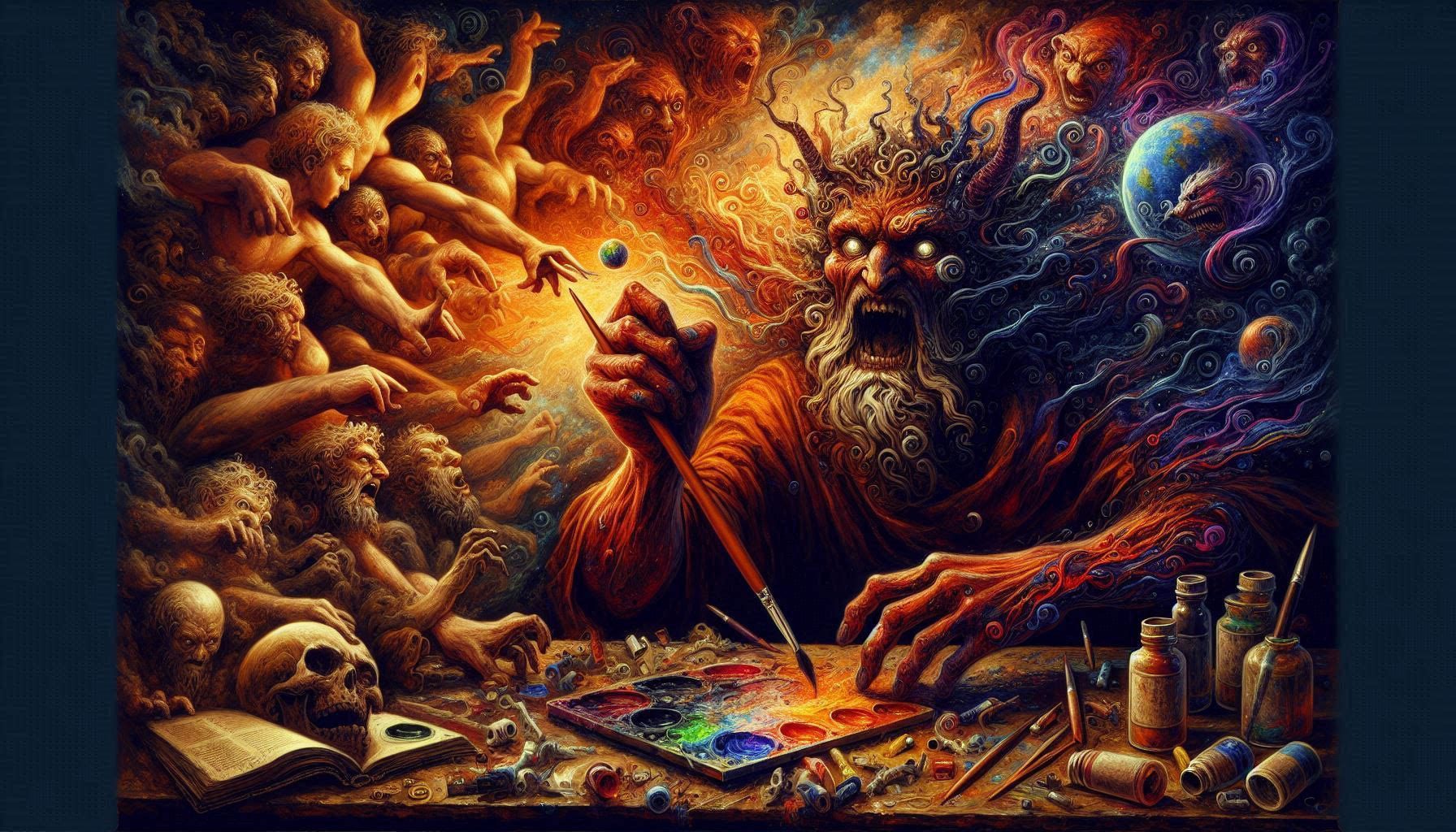
On the other hand, maybe sanity will prevail and Humans will find a way to peacefully coexist.
“There is nothing like a dream to create the future.” - Victor Hugo, Les Misérables.
The only thing we can do, as Blind Boy Fuller said, is to "Keep on truckin' " and "Just be cool, man!" and find a balance between...

this,
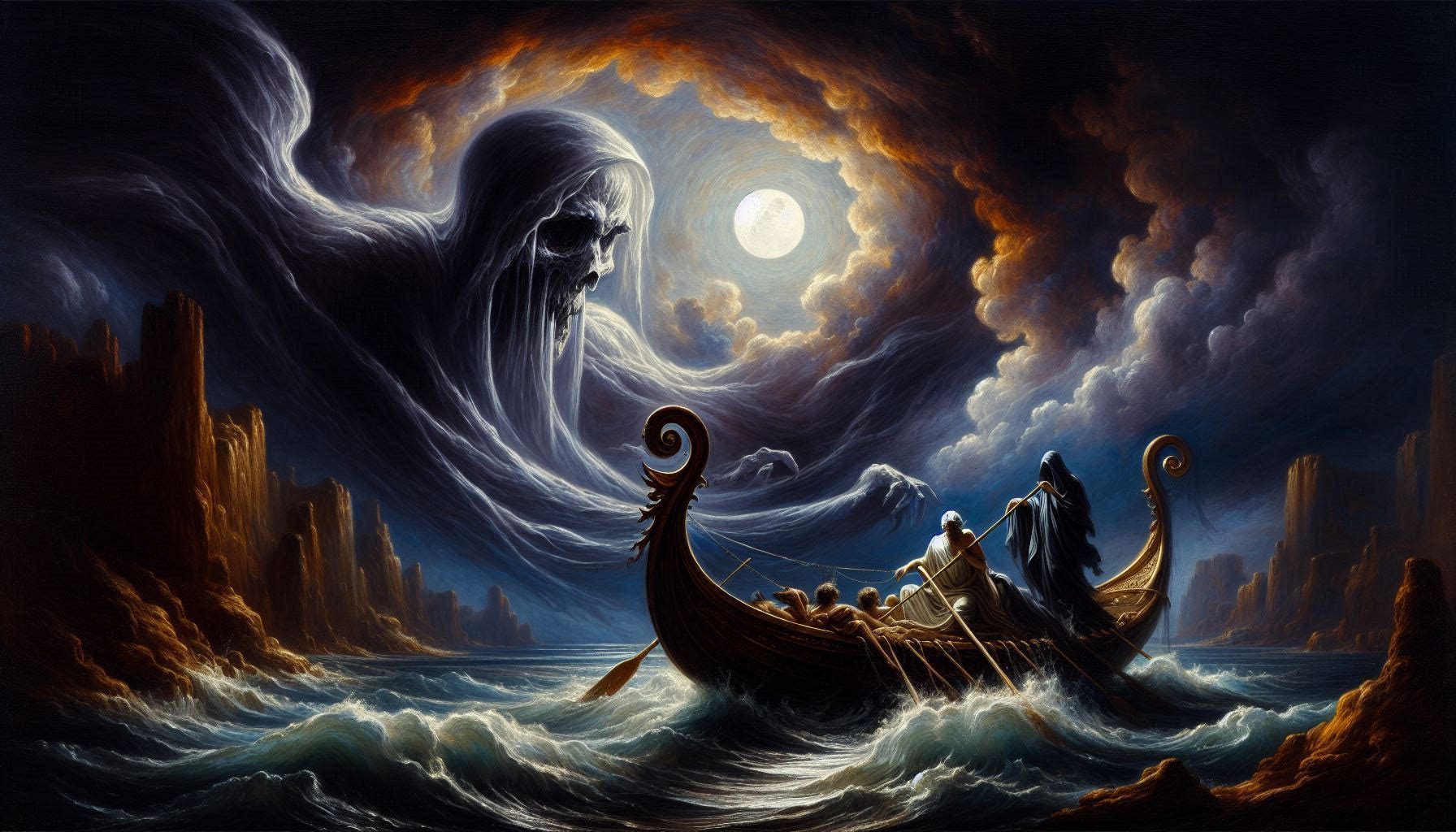
and this...

"Creativity is a kind of madness, a [ natural ] inspiration" - Plato


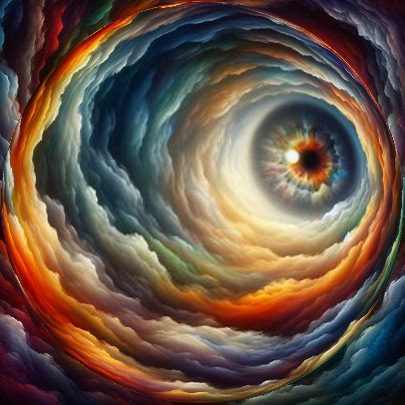
"Fear is the basis of religious dogma; it is fear of nature that gives rise to religion." - Bertrand Russell
"The LORD watches over you; the LORD will watch over your coming and going both now and forevermore."
“VENGEANCE IS MINE, I WILL REPAY.” “THE LORD WILL JUDGE HIS PEOPLE.” And etcetera etcetera, the words of Man, invented to terrorize and control other Men.
final thought...
